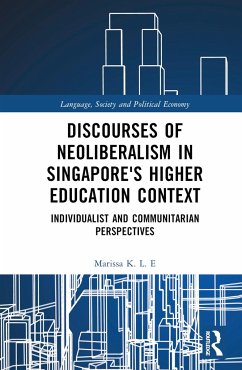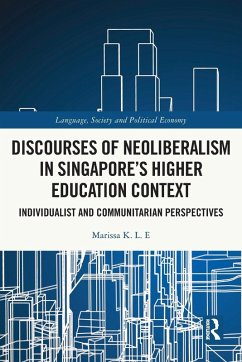
Gebundenes Buch
Redefining Tandem Language and Culture Learning in Higher Education
Versandkostenfrei!
Versandfertig in 1-2 Wochen

PAYBACK Punkte
93 °P sammeln!




This book provides a comprehensive critical account of tandem learning, charting it evolution from its origins in European educational settings to modern programs offering new perspectives on the approach's role within higher education.
Claire Tardieu is Professor of SLL at the Department of English at Sorbonne Nouvelle University. She is the author of Notions clés pour la didactique de l'anglais (2014). As a collaborator of the French Secretary of Education since 2001, she took part in several European Projects supported by the Council of Europe. She participated in writing for the Lingua D project which disseminated the tandem practice in secondary schools. Her latest studies concern teacher-to-student and peer-to-peer assessment. Céline Horgues is a senior lecturer in the English Department, at Sorbonne Nouvelle University, where she mainly teaches English phonetics. With Sylwia Scheuer, she coordinated the collection and analysis of a multimodal corpus of English-French tandem spoken interactions (the SITAF corpus, 2012-2014), presented in the 2015 article "Why some things are better done in tandem?". In 2012, she created a tandem course and a free tandem programme for the students of her department.
Produktdetails
- Verlag: Routledge
- Seitenzahl: 308
- Erscheinungstermin: 12. September 2019
- Englisch
- Abmessung: 235mm x 157mm x 21mm
- Gewicht: 599g
- ISBN-13: 9781138584617
- ISBN-10: 1138584614
- Artikelnr.: 57781326
Herstellerkennzeichnung
Libri GmbH
Europaallee 1
36244 Bad Hersfeld
gpsr@libri.de
Für dieses Produkt wurde noch keine Bewertung abgegeben. Wir würden uns sehr freuen, wenn du die erste Bewertung schreibst!
Eine Bewertung schreiben
Eine Bewertung schreiben
Andere Kunden interessierten sich für











